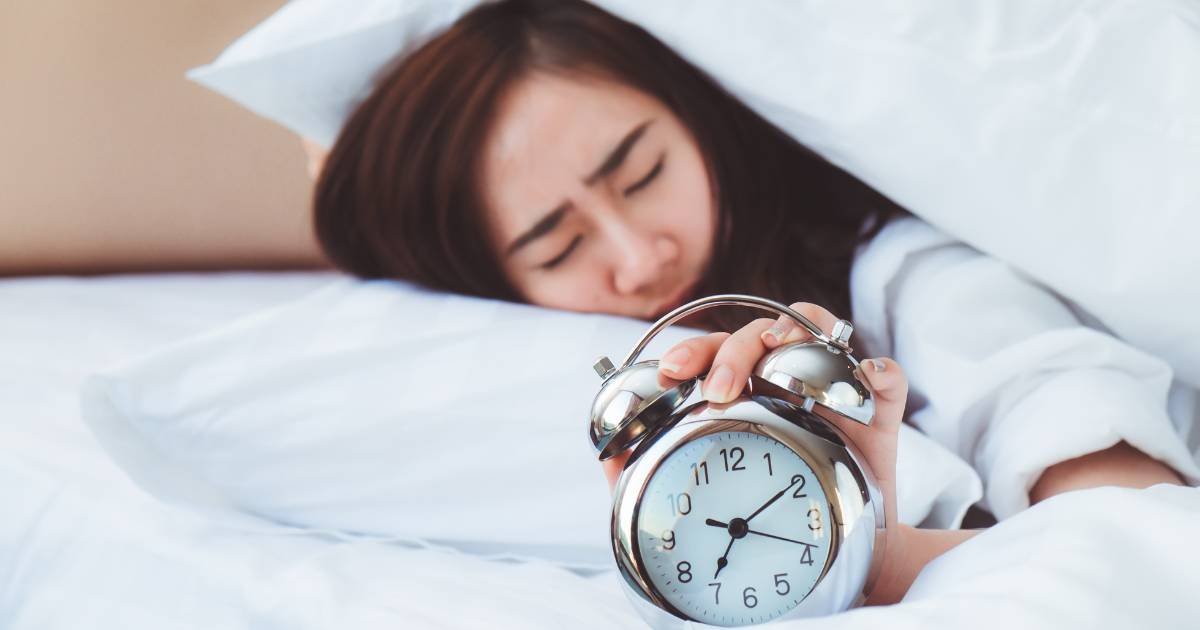Fatigue, or the state of being tired, and diabetes are two conditions that are often associated with each other.
Although there is no diagnosable “diabetes fatigue syndrome,” each condition can exacerbate the other. This creates a vicious cycle that can make diabetes management more difficult.
This article will explain the connection between the two conditions and what to do if you’re always tired and live with diabetes.

Table of Contents
- What does fatigue have to do with diabetes?
- Does diabetes cause fatigue, or does fatigue cause diabetes?
- What causes you to feel tired when you have diabetes?
- How can you not feel so tired when you have diabetes?
- What should you do if you’re struggling with constant fatigue?
- Does drinking more coffee help with fatigue?
- Do diabetes medications cause fatigue?
- What are the best foods to eat if I have fatigue?
What does fatigue have to do with diabetes?
There are many causes of fatigue, especially if you live with diabetes. However, fatigue and being tired are also hallmark symptoms of undiagnosed diabetes and prediabetes.
If you live with existing diabetes, being tired is usually a symptom of another underlying cause or complication.
Being tired from time to time is normal. Especially if you’re suffering from the mental fatigue that so many people with diabetes face from making so many daily decisions about their lives and care.
Additionally, if you struggle with high and low blood sugar levels overnight, your sleep may be frequently disrupted, making you tired the following day.
However, chronic fatigue can be damaging to your diabetes management and should be remedied as soon as possible so it doesn’t hinder your health.
Does diabetes cause fatigue, or does fatigue cause diabetes?
Fatigue does not cause diabetes. Diabetes, however, can cause fatigue or exacerbate feelings of tiredness.
This does not have to be inevitable, however. Having diabetes does not guarantee that you’ll be tired or struggling with fatigue.
Closely managing your blood sugar levels, exercising regularly, and eating healthy can help prevent fatigue and manage tiredness.
What causes you to feel tired when you have diabetes?
There are three main causes of tiredness if you have diabetes:
High blood sugar
A classic symptom of high blood sugar is fatigue.
This is because when there isn’t enough insulin in the body, cells cannot properly digest glucose from the food you eat, and sugar spills out into the bloodstream.
Your cells are literally being starved of energy, which makes you tired.
Having high blood sugar also contributes to frequent urination and dehydration, and being dehydrated can make you tired, especially in heat and humid weather.
Once you take insulin (or another diabetes medication) and your blood sugars come back down to normal, fatigue from high blood sugar can go away.
It can take a while before you feel completely back to normal, especially if your blood sugars were dangerously high or you were in diabetic ketoacidosis (DKA).
Low blood sugar
A common symptom of low blood sugar is fatigue. This is because the cells in your body have too much insulin and not enough glucose.
This renders them unable to function properly.
Low blood sugars can also be dangerous and fatal if not treated quickly with fast-acting carbohydrates.
Usually, once your blood sugars are back within a healthy range, energy levels return to normal, but this also can take some time.
Diabetes complications
Aside from acute low and high blood sugar levels, longer-term diabetes complications, such as kidney, heart, or liver disease or hypothyroidism, can also cause fatigue.
Over time, high blood sugar decreases both blood flow and oxygen throughout the arteries, blood vessels, and veins of the body.
This may include oxygen flow and blood to important organs like the heart and brain.
Lack of oxygen, blood, and nutrients can cause fatigue and brain fog.
Visit your doctor regularly to help prevent complications and monitor for any new complications, especially if you’re experiencing new-onset chronic fatigue.
Hypothyroidism, for example, can be detected with a simple blood test.
Being overweight or obese can also contribute to fatigue. If you’re overweight and have diabetes, that may be why.
Talk with your doctor if you’re concerned about diabetes complications or want to learn more about losing excess weight to help manage the fatigue you may be feeling.
How can you not feel so tired when you have diabetes?
Some fatigue with diabetes is to be expected: decision fatigue over medication and blood sugar management, sleep disruptions throughout the night due to high or low blood sugar levels, and just the wear and tear of a chronic disease do make people naturally tired.
However, closely monitoring your blood sugar levels to prevent both high and low numbers can help mitigate fatigue.
Over the long term, preventing diabetes complications can be hard, but can also help combat fatigue. You can do this with the following:
- Keeping your blood sugar and A1C levels within a healthy range (this will vary, but the American Diabetes Association recommends less than a 7% A1C) to prevent complications.
- Wearing a continuous glucose monitor (CGM) to help prevent high and low blood sugars.
- Wearing an insulin pump with adjustable basal and bolus rates to help prevent high and low blood sugars.
- See your doctor regularly to monitor your diabetes and to test for both diabetes complications and comorbidities that may be contributing to fatigue.
- Eating a lower-carbohydrate, anti-inflammatory diet.
- Exercising regularly.
- Managing stress.
- Call your doctor if you experience new or worsening symptoms, including tiredness and fatigue.
What should you do if you’re struggling with constant fatigue?
If you’re managing your blood sugars well and are not struggling with any long-term diabetes complications, there are some additional strategies you can employ to improve constant fatigue:
- Aim for between seven to nine hours of sleep per night.
- Ask your doctor to check for any comorbidities of diabetes that may be causing fatigue, such as Celiac disease or hypothyroidism.
- Stay hydrated with water.
- Cut caffeine (coffee, tea, chocolate, energy drinks) earlier in the day.
- Exercise daily.
- Eat non-inflammatory foods, like whole fruits, vegetables, and lean protein.
- Do not use screens or electronics right before bed.
- Use blackout curtains.
- Turn the temperature down in your bedroom for more restful sleep.
Does drinking more coffee help with fatigue?
This is a tricky question because drinking caffeine in coffee or tea (or eating it in chocolate!) will undoubtedly help with fatigue.
However, if you eat or drink caffeine in excess or too late in the day, it can negatively affect your sleep, keeping you up late into the night.
Ultimately, this will make you more tired on the following day.
This can lead to a vicious cycle of not sleeping well and needing more and more caffeine throughout the day to stay alert and awake.
About 400 mg of caffeine is safe for most healthy adults, which is the equivalent of about four cups of coffee, ten cans of soda, or two energy drinks.
Talk with your doctor about your personal caffeine limits, what is an ideal daily amount for you, and when in the day you should cut the caffeine so it doesn’t affect your sleep.
Most doctors recommend people stop drinking caffeinated beverages about eight hours before they intend to go to sleep.
Do diabetes medications cause fatigue?
No, this is not usually the case.
While diabetes medications, like insulin, cause low blood sugar that may cause fatigue, the medications in and of themselves do not usually have side effects that include fatigue.
Keep in mind the signs and symptoms of low blood sugar, which include:
- Tiredness
- Shakiness
- Fogginess
- Feeling clammy or sweaty
- Rapid heart rate
- Anxiety
Test your blood sugar if you’re feeling low and treat it with rapid-acting glucose immediately.
Contact your doctor if you’re struggling with adverse side effects from any new or existing diabetes medications you’re taking.
What are the best foods to eat if I have fatigue?
Work with your doctor to develop a meal plan that will work best for you.
In general, however, you’ll want to stick to an anti-inflammatory diet of lower-carbohydrate, whole foods to combat fatigue.
Eating lower-carbohydrate foods will also help prevent high blood sugar levels and the blood sugar rollercoaster, both of which contribute to fatigue.
Some foods to eat to combat tiredness include:
- Fresh fruits, including strawberries, blueberries, raspberries, coconut, tomatoes, and avocado
- Fresh vegetables, including leafy greens, cruciferous vegetables, bell peppers, and green beans
- Lean protein, including fish, chicken, tofu, turkey, eggs, and beans
- Low-fat dairy, including Greek yogurt, cheese, cottage cheese, and milk products
- Healthy fats, including extra virgin olive oil, nut butter, and nuts
- Plenty of water and unsweetened tea and coffee


